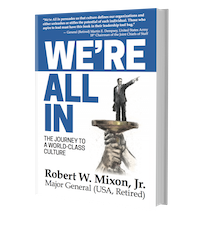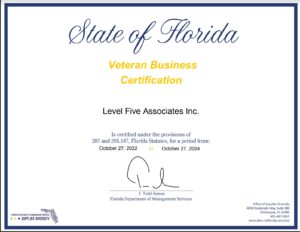
I’ve posted here before about the ideal of “We’re All In.” People want to feel they contribute to the greater good. They want to be engaged. Being “All In” means being engaged. I once heard a powerful story that illustrates this concept.
A car dealer told me about a chance encounter he had at the end of a workday with one of his service technicians. The technician was just finishing up a repair when the dealer approached and asked him what he had accomplished that day. The service technician replied:
“Well, today I made nine families’ lives safer.”
Note the technician’s words. He didn’t simply say, “I fixed nine cars.” Instead, he was looking at the bigger picture and saw how his repairs would help drivers and their families be far safer. The technician viewed his work as being more than just a job. He had bought into his company’s culture and recognized the value of his work. He was “All In.”
Surveys conducted in companies and organizations throughout the country indicate that only about 13% of people in the workforce are really “All In.” The term deserves some further explanation at this point. When we say we’re “All In,” that means we are fully committed to the goals of the organization; we have aligned our personal values to the company’s values.
This means that the remaining 87% are somewhere in the middle—or they’re out on the far end. Some of that can be assessed and developed in the talent planning process. However, it serves as an indication as to where you are in terms of growing the next level of leaders and having a goal to continuously get better. Culture is never static; it either gets better or gets worse.

This blog is based on material from my book “We’re All In.” You can get a copy of the first chapter for free here.
If you’d like a full copy of the entire book, you can get it here.
Enjoy the journey!
Did you find this blog post beneficial? If so, please share it with your audience using one of the choices below. It’ll just take a second, but could improve someone’s work habits for a long time to come.





